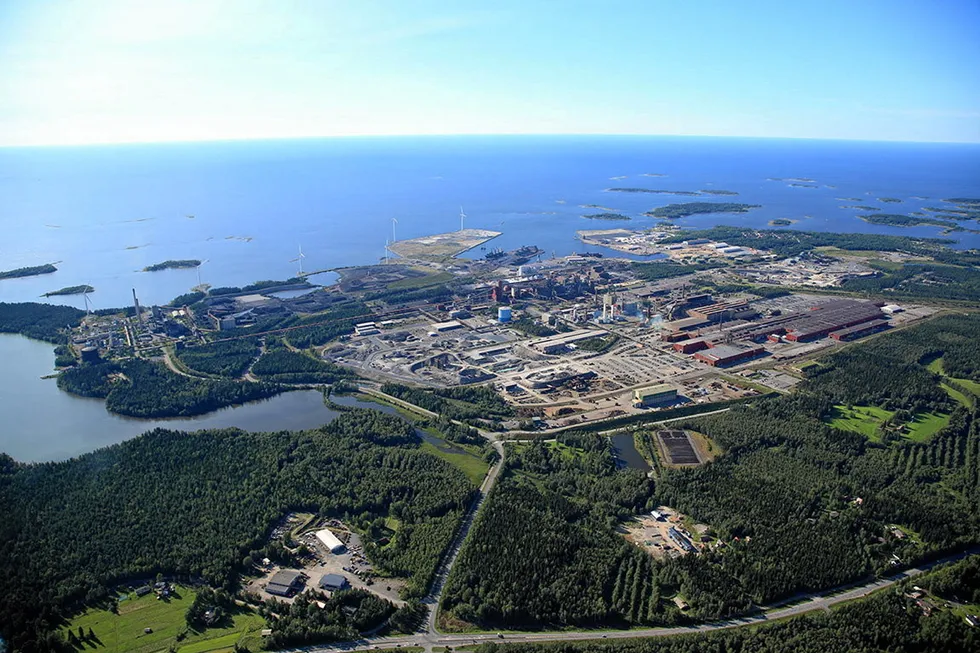Swedish firm behind world's first 'fossil-free' steel pilot shelves plan for hydrogen facility at Finnish steelworks
SSAB and Fortum have concluded a FEED study early, finding that a viable commercial arrangement is 'not possible'

SSAB, a Swedish steelmaker and one of the firms behind the Hybrit consortium for fossil-free steel production, has cut short a front-end engineering design (FEED) study with Finnish energy company Fortum for a project producing hydrogen for direct iron reduction at the existing Raahe steelworks.
Stay ahead on hydrogen with our free newsletter
The FEED study, announced in June this year, was meant to run until early 2024. However, the two firms have announced that they have concluded this step of development early and will not move ahead with the project at this time.
“SSAB and Fortum jointly concluded that it was not possible to find a commercial arrangement that would work for both parties,” the steelmaker said in a statement this morning, adding that “no further steps have been agreed”.
However, SSAB also noted in its statement that “exploring the Raahe option with Fortum was one alternative among others” for producing green steel.
The consortium is currently building a demonstration plant with 500MW of electrolysis capacity to produce enough fossil-free sponge iron on LKAB's site in Gällivare, Sweden to ultimately produce 1.2 million tonnes of crude steel, or around a quarter of steel production in the country, to be used in SSAB’s operations.
The plant, as well as two new electric arc furnaces at SSAB’s steel plant Oxelösund, near Stockholm, has already been allocated €143m ($152m) in grants from the EU Innovation Fund.
The Swedish steel company is also “continuing to work on the green transition of its Nordic strip production according to plan and the conclusion of the FEED study will not affect this”, highlighting its plan to transition Raahe and another steelworks in Luleå, Sweden, into so-called “mini-mills”, which will feature electric arc furnaces and rolling mills.
“A decision on the order of investments in Raahe and Luleå is expected next year,” the steelmaker said.
(Copyright)Why use hydrogen to decarbonise steel?
Hydrogen is currently the only viable route to fully decarbonising the steel sector, which accounts for 7-11% of global carbon emissions at present.
Today, most steel is made using a carbon-intensive blast furnace-basic oxygen furnace (BF-BOF) method, which uses coal to both heat and extract iron from iron-oxide ore, before other substances are introduced to make steel.
Hydrogen can be used instead of coal to both heat and remove oxygen from the ore in a process known as direct-reduced iron (DRI). DRI plants have been in commercial use for some time, using natural gas as the reducing agent, but hydrogen DRI plants are now being commercialised.
Hydrogen-DRI is currently the only available method of fully decarbonising iron production. When paired with an electric arc furnace (EAF) to help turn that iron into steel, emissions could theoretically be reduced to zero.
However, as most plants today still use BF-BOF, it will require a massive amount of capital investment to realise a switchover to hydrogen-DRI and EAF, resulting in slightly more expensive green steel.